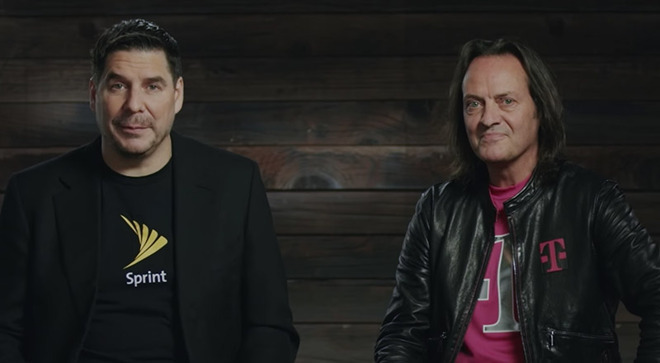A recent meeting between U.S. Federal Communication Commission chairman Ajit Pai and the head of the Justice Department's antitrust division could presage unification over a planned T-Mobile-Sprint merger, a deal that DOJ staff recommended against.
Citing sources familiar with the matter, the New York Post on Friday reports Pai "consulted" with DOJ antitrust chief Makan Delrahim prior to proclaiming support for the merger early this week.
Details of the conversation are unknown, but the fact that the two officials were in discussions before Pai's surprise announcement suggests consensus on the issue, the report said.
Both the FCC and DOJ need to sign off on the proposed merger, but a recent report claimed the Justice Department would likely block the deal from going through.
In April, DOJ staffers raised concerns over the proposal's promises. At issue are calculated cost savings and how the resulting company, dubbed "New T-Mobile," plans to provide customers with reliable access to next-generation 5G technology.
According to the Post, DOJ staff maintains its position against the merger, saying it is anticompetitive. Ultimately, however, the decision falls to Delrahim.
When last questioned about the deal in April, the DOJ's antitrust head said he was still undecided.
"I have not made up my mind," Delrahim said at the time. "The investigation continues. We've requested some data from the companies that will be forthcoming. We don't have a set number of meetings or a time line."
Delrahim could impose concessions on the final agreement in return for giving the go-ahead, the report said. Specifically, DOJ staff has pushed to ensure the newly formed entity caps wireless prices for a longer term — up to seven years — than the three years that gained FCC approval. That said, the FCC is expected to handle enforcement, unburdening the DOJ of oversight duties.
"It will be hard for Makan to argue this will have a bad impact on competition when the FCC enforces these conditions," said a Post source who works with T-Mobile and Sprint. "The DOJ will clear this unconditionally."
T-Mobile and Sprint first announced the $26 billion merger in 2018, proposing a single combined entity capable of competing against industry front runners Verizon and AT&T. The companies in April extended the merger's deadline to July 29, giving the FCC and DOJ an extra 90 days to approve the deal.
 Mikey Campbell
Mikey Campbell







-m.jpg)






 Marko Zivkovic
Marko Zivkovic
 Wesley Hilliard
Wesley Hilliard
 Amber Neely
Amber Neely

 Malcolm Owen
Malcolm Owen
 William Gallagher
William Gallagher

 Christine McKee
Christine McKee




-m.jpg)



3 Comments
If Ajit Pai is in favour of it (and he is), then it's a guaranteed bad deal for consumers.
I agree with Chasm, the deal doesn't make sense. Canada has reduced to 3 major cell providers and competition hasn't improved, it is actually worse. In other industries mergers have happened with no benefits to customers, ie. cable companies have been bought out by Comcast, other cable companies have merged to create larger a larger company and currently the cable industry is under scrutiny for out of control prices with little competition to bring prices down.
Also, Sprint and T-Mobile use different technologies for their networks (CDMA and GSM respectively) making a major overhaul necessary to make things compatible. Users will be forced to upgrade devices to be compatible with this new network, or better millions of Sprint users moving to T-Mobile devices which if I must upgrade why not choose explore AT&T or Verizon while I am at it? What if I'm on Sprint because T-Mobile doesn't work well where I am most? I have a Sprint cell site literally 1.5 blocks away from me giving at worst 80Mbps and signal at 92-96db. T-Mobile average for my area (by RootMetrics) is 38Mbps, with signal of 124db alone with dropped calls and their cell site is only 3 more blocks from Sprint's. It will take over a year to switch cell sites to work with the new network or transfer Sprint equipment to T-Mobile equipment, if switched at all instead of eliminated.
With the changing of equipment to create this network, how will it be funded? No price increase as promised means digging a deeper financial hole for T-Mobile or selling off major obtained infrastructure to fund these changes. After the promised no price increase period, something has to happen to recoup these spent funds.
I can't believe less competitive companies means more competition...